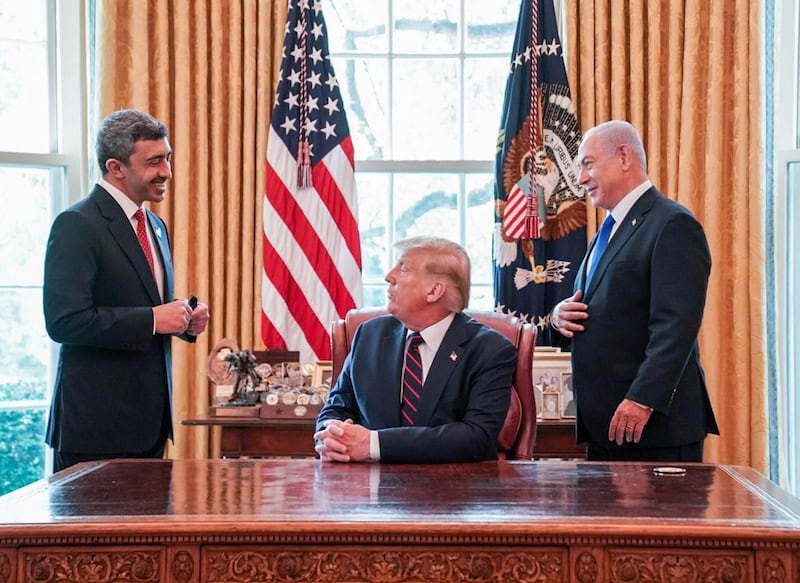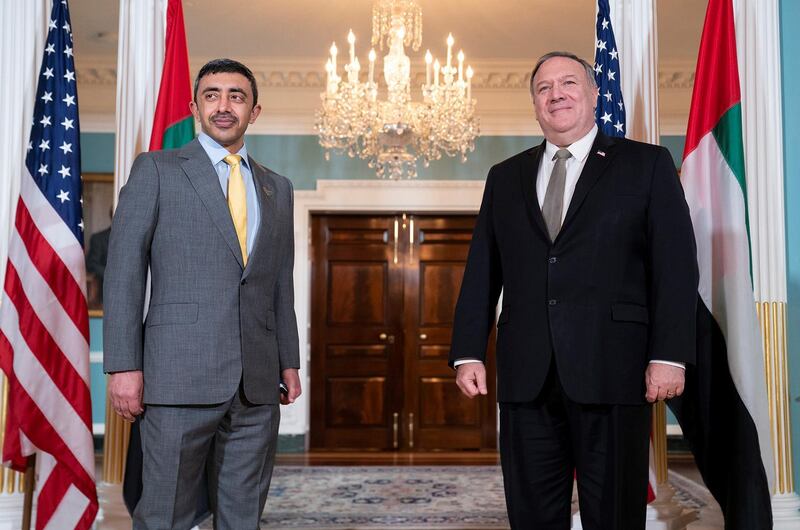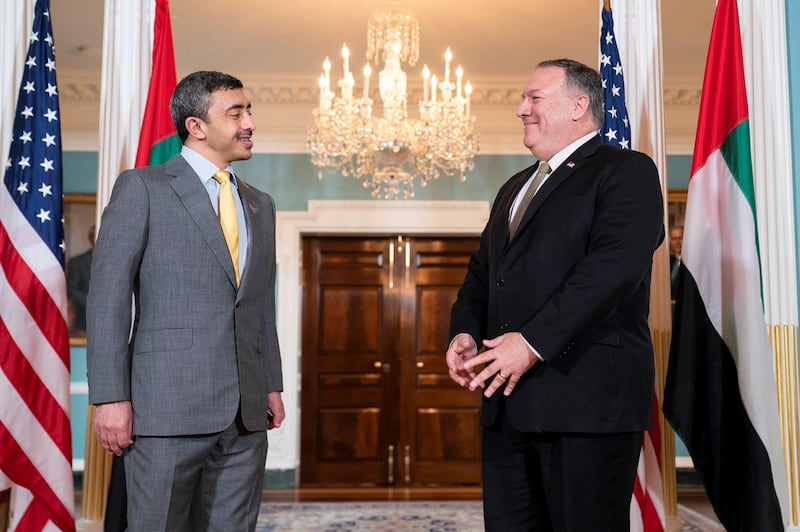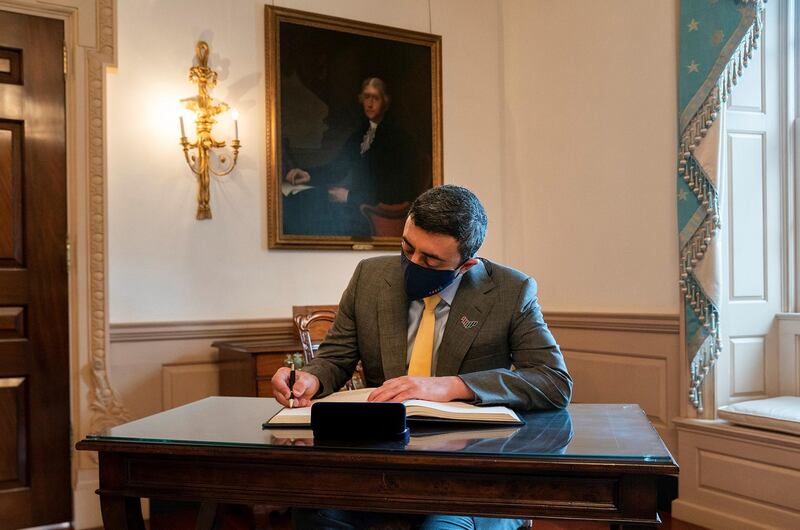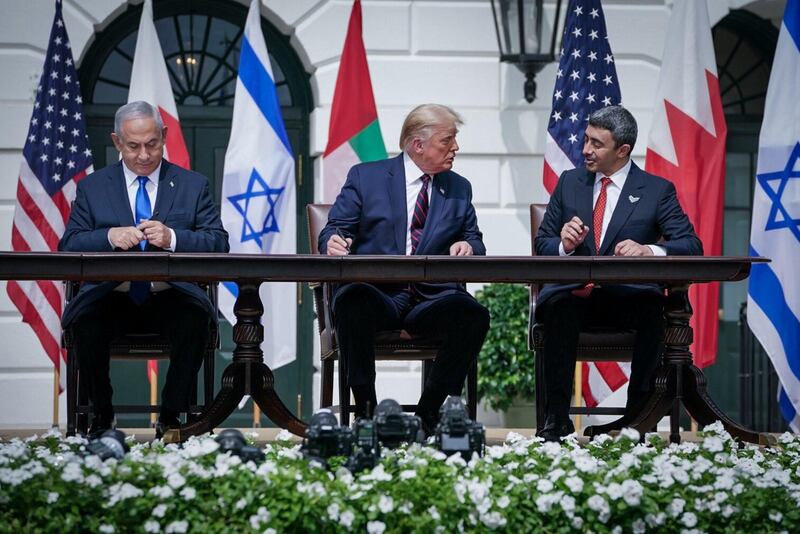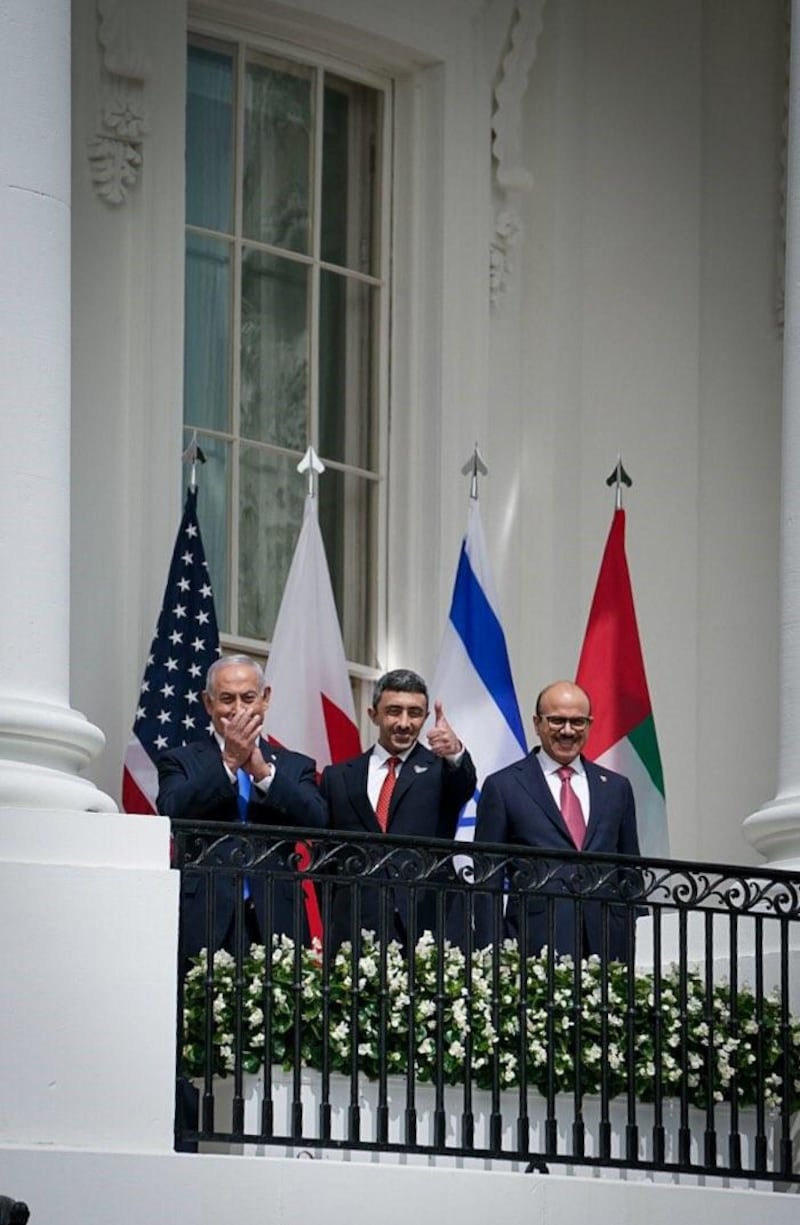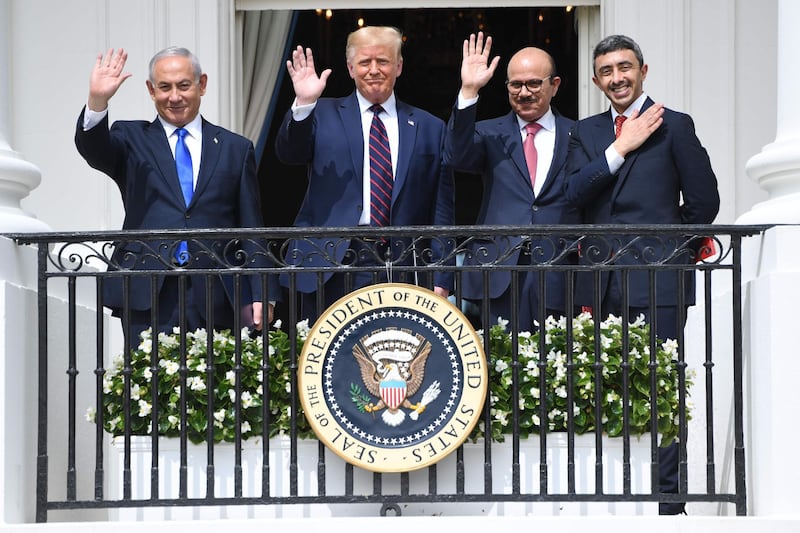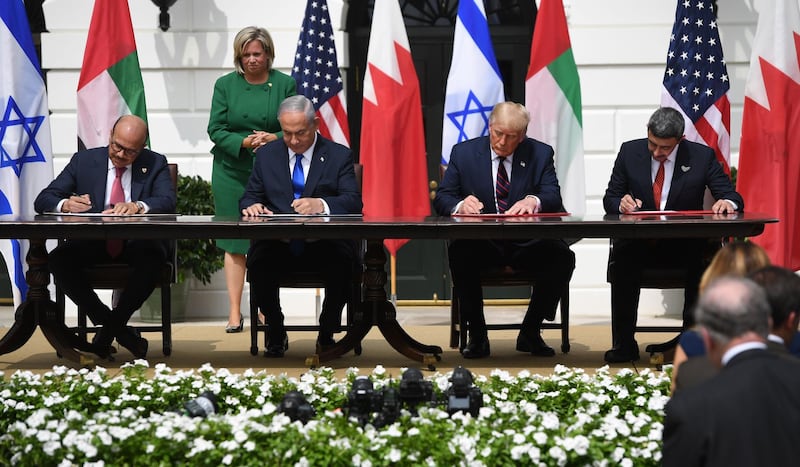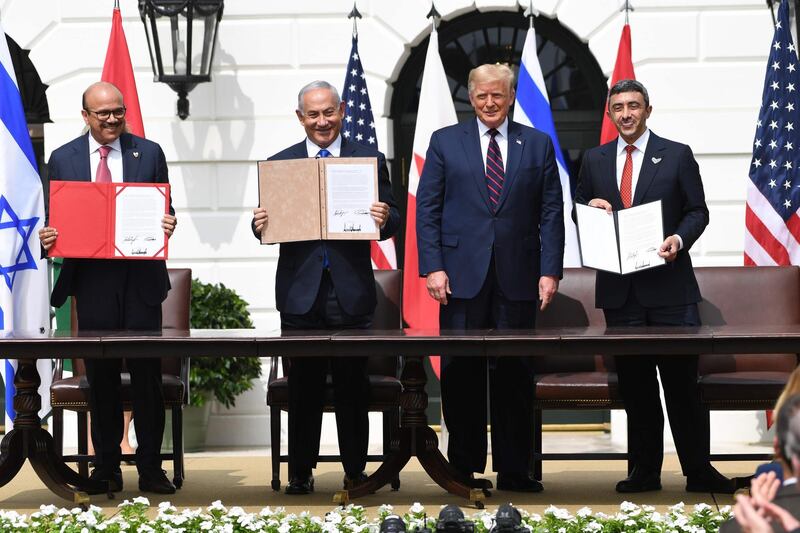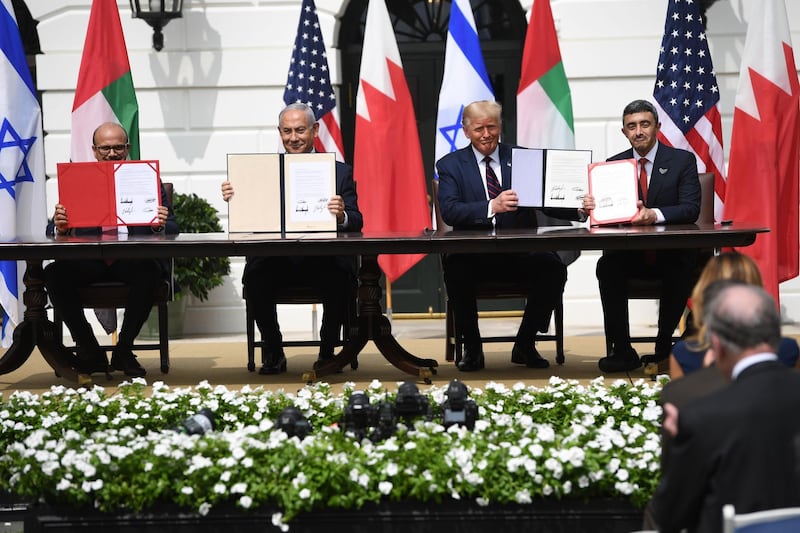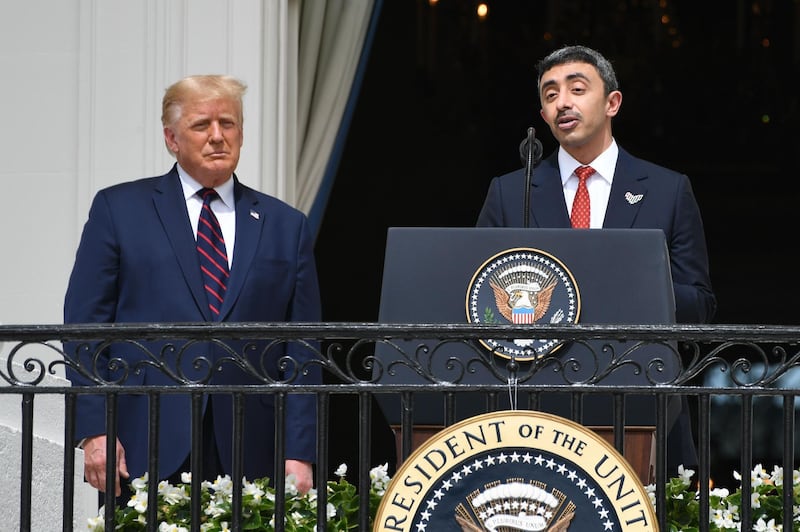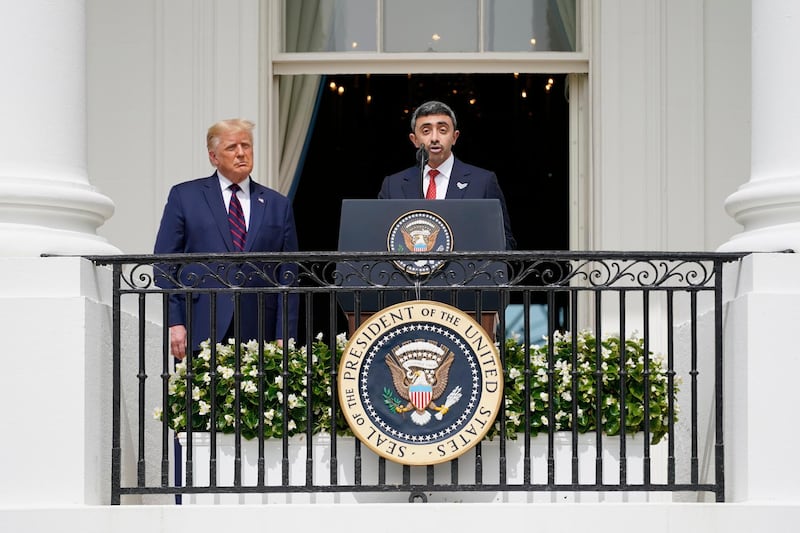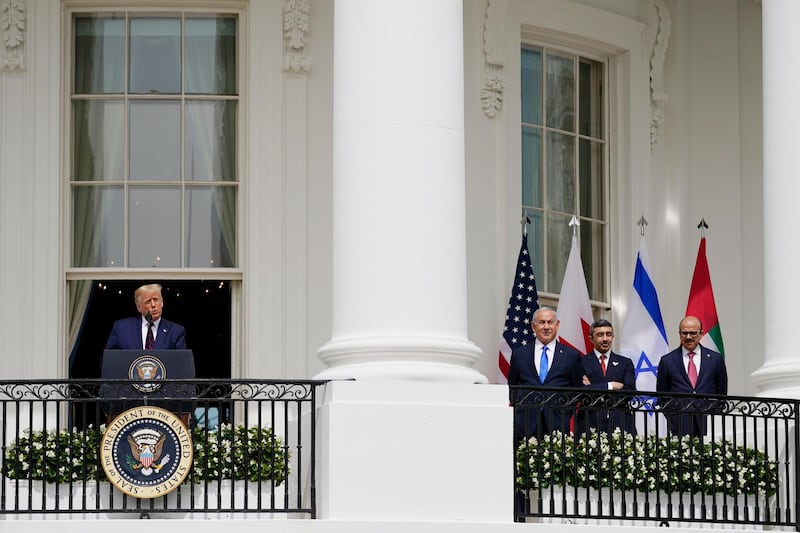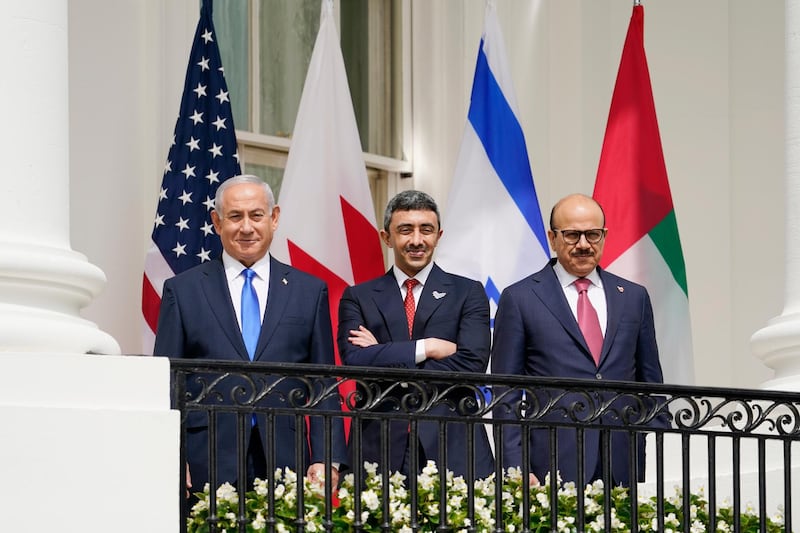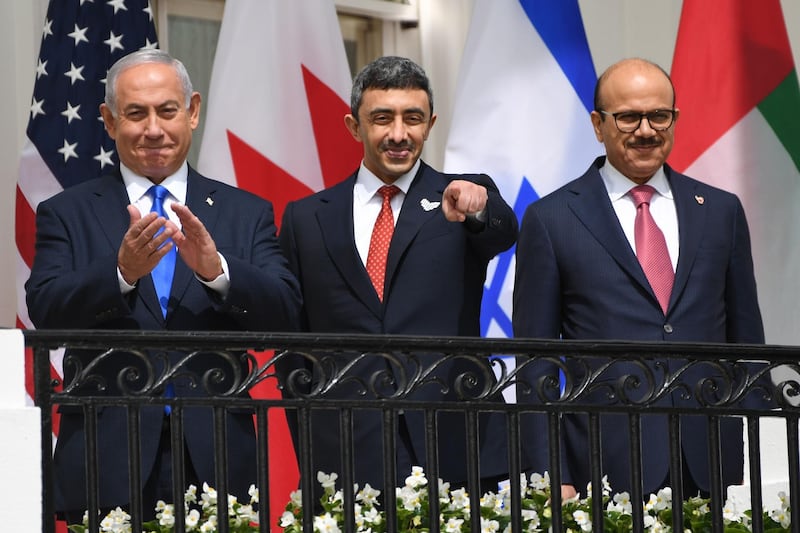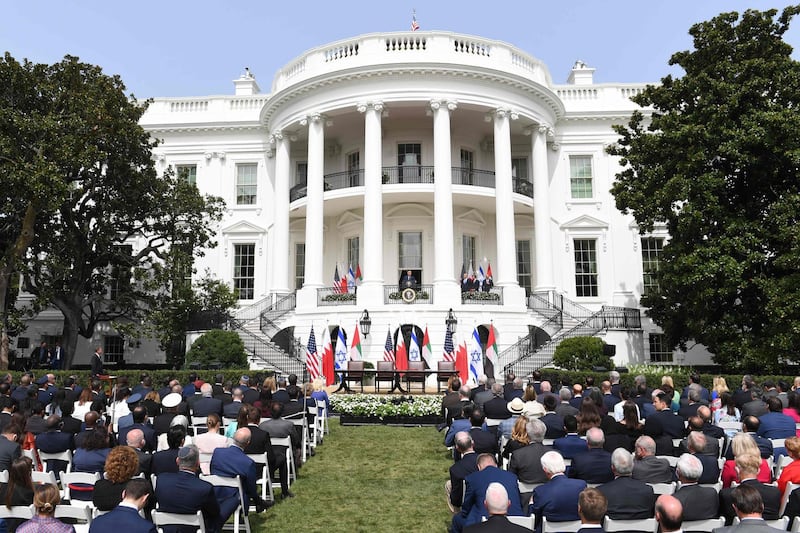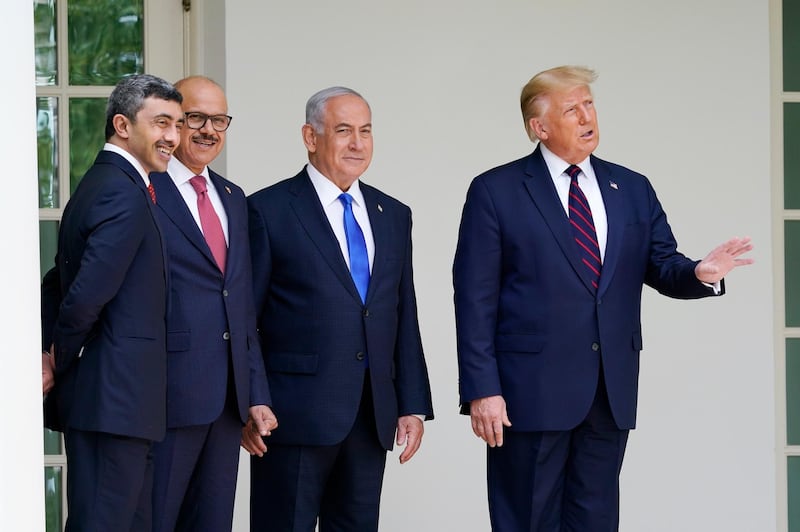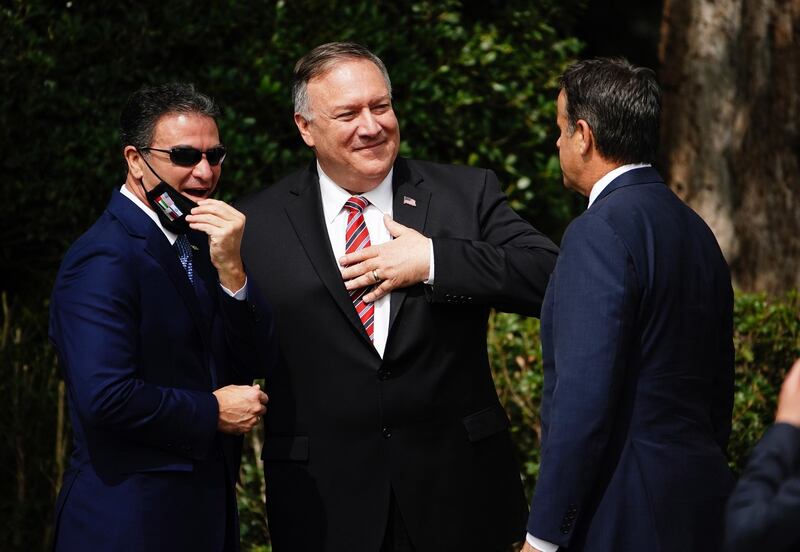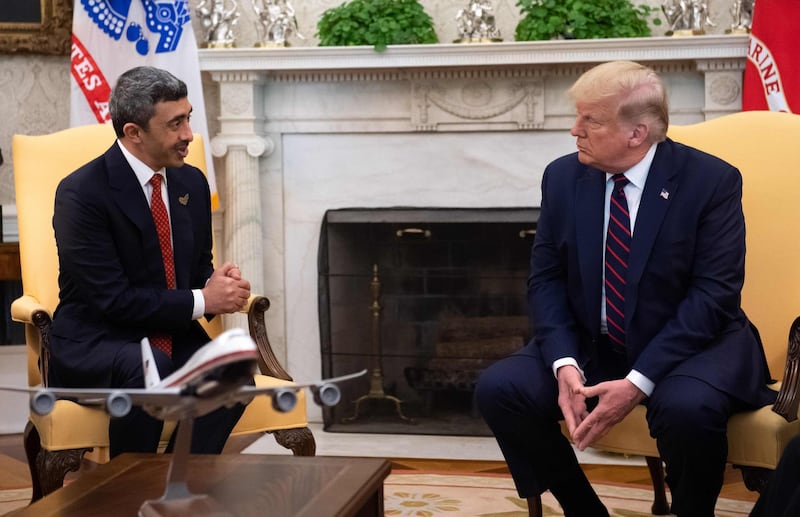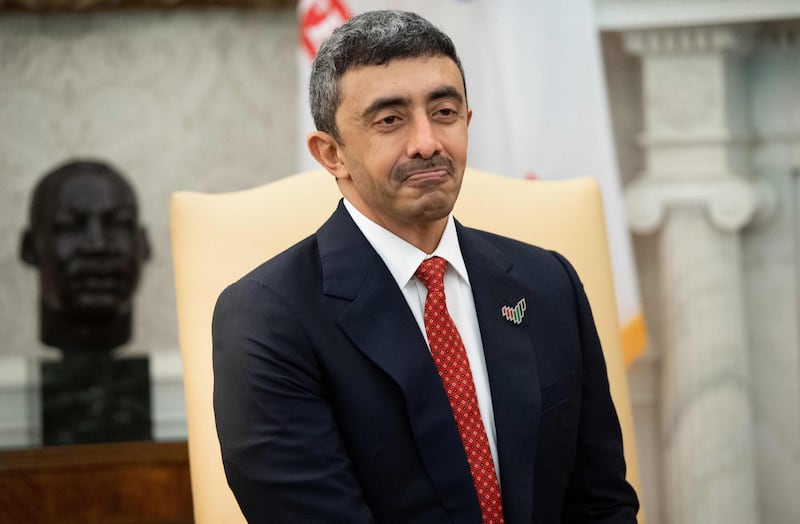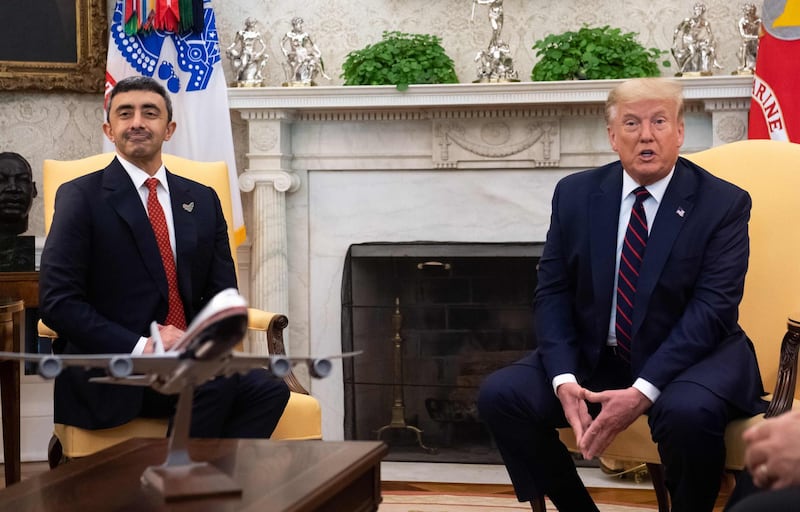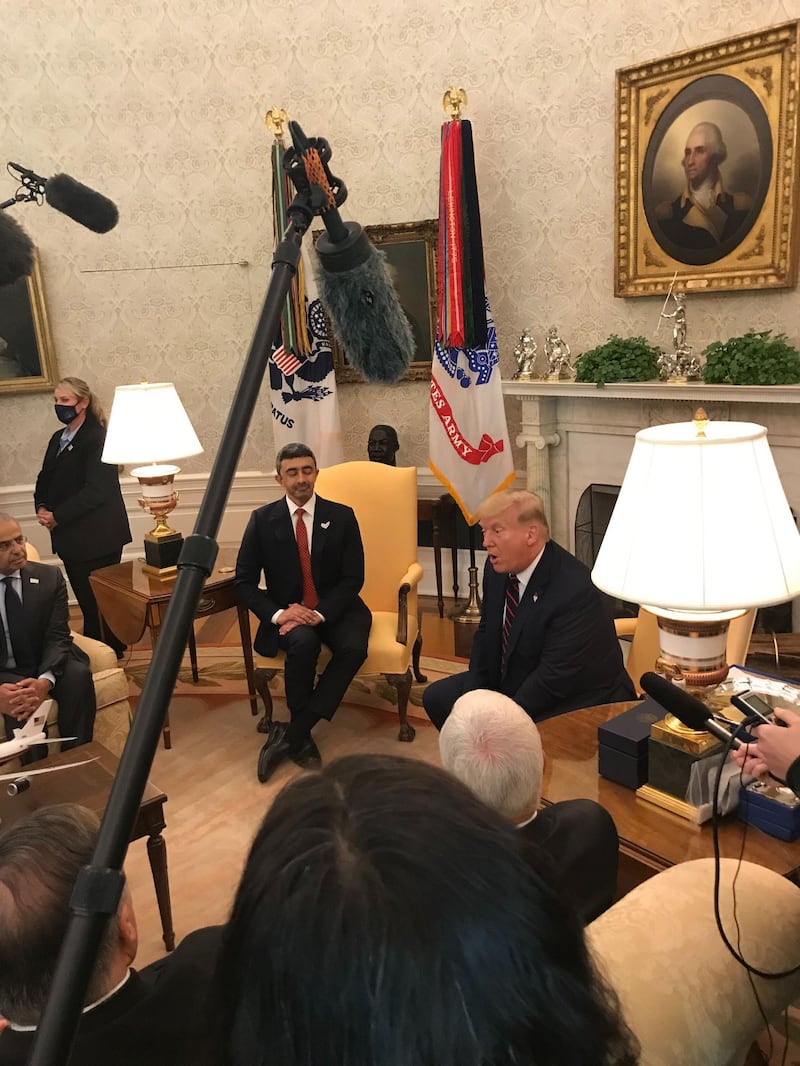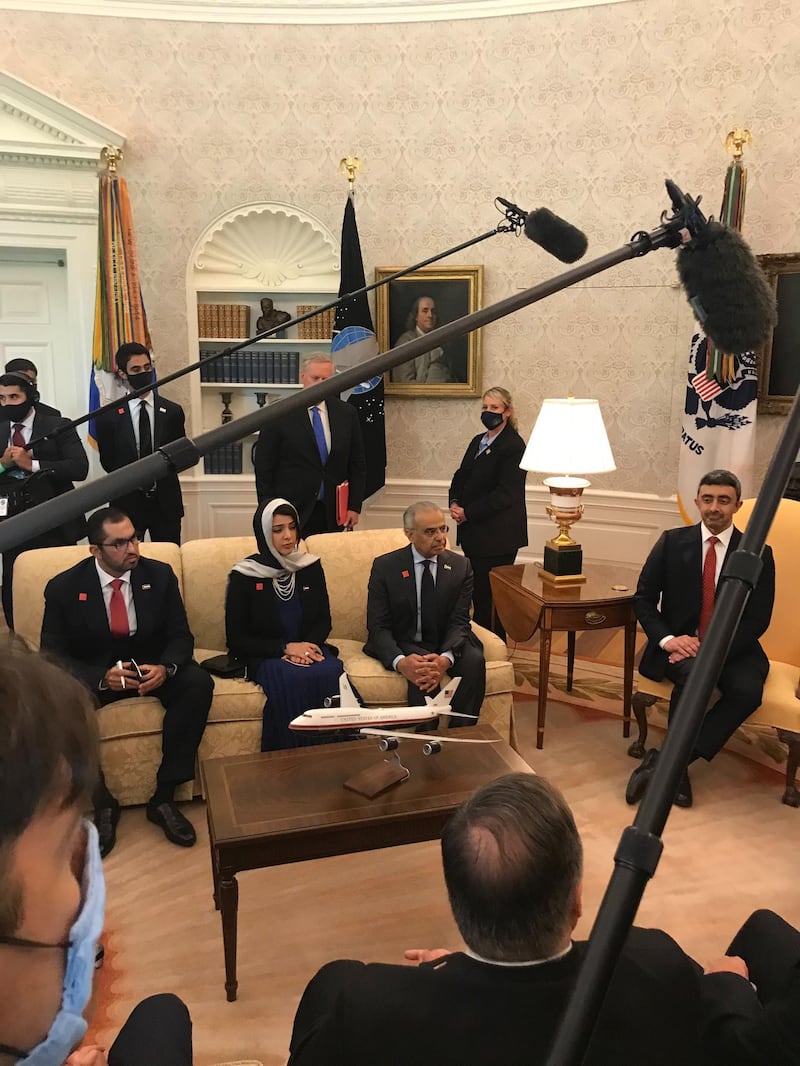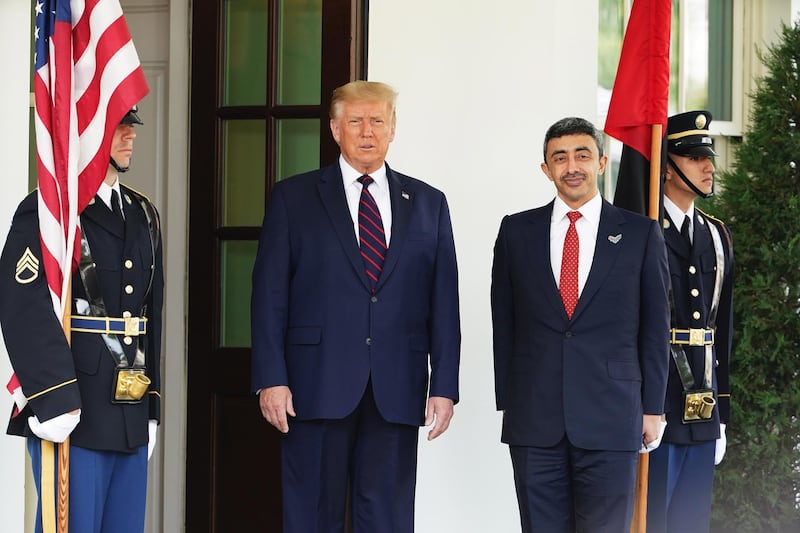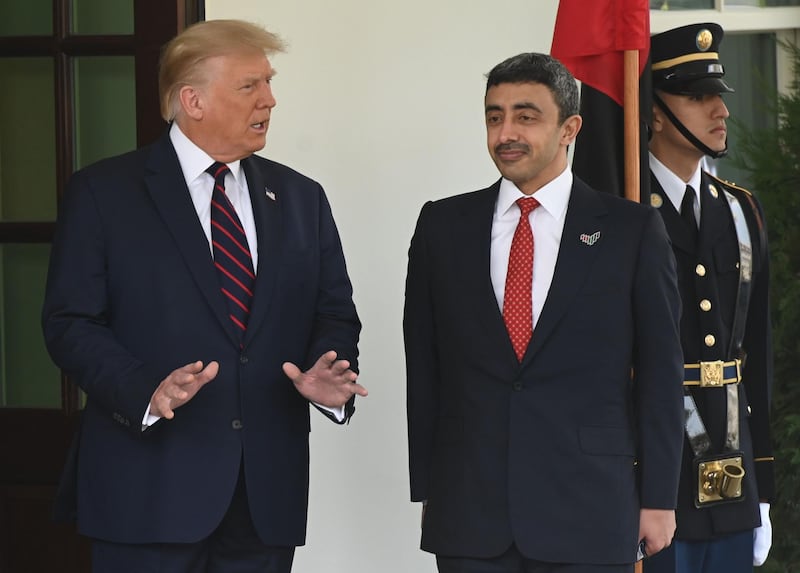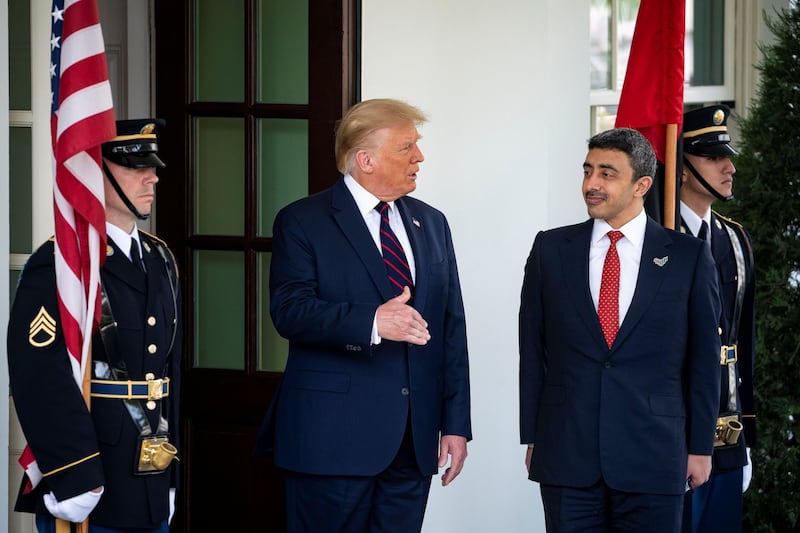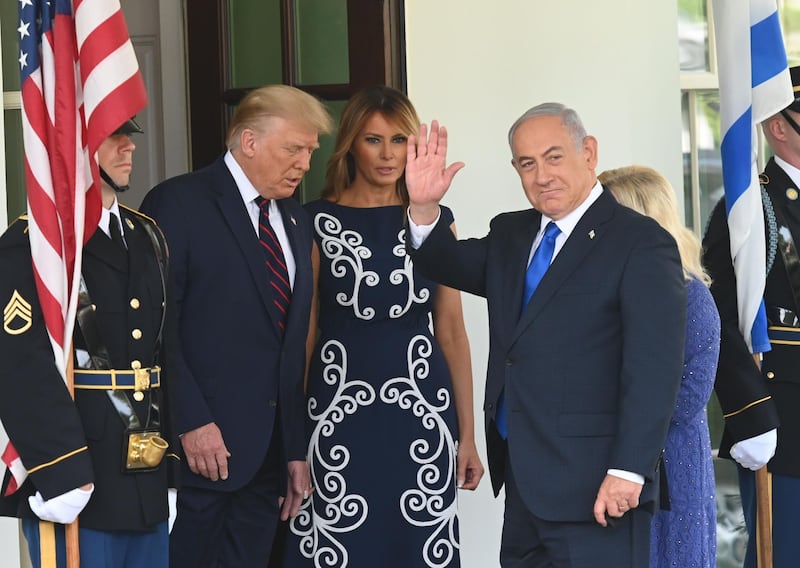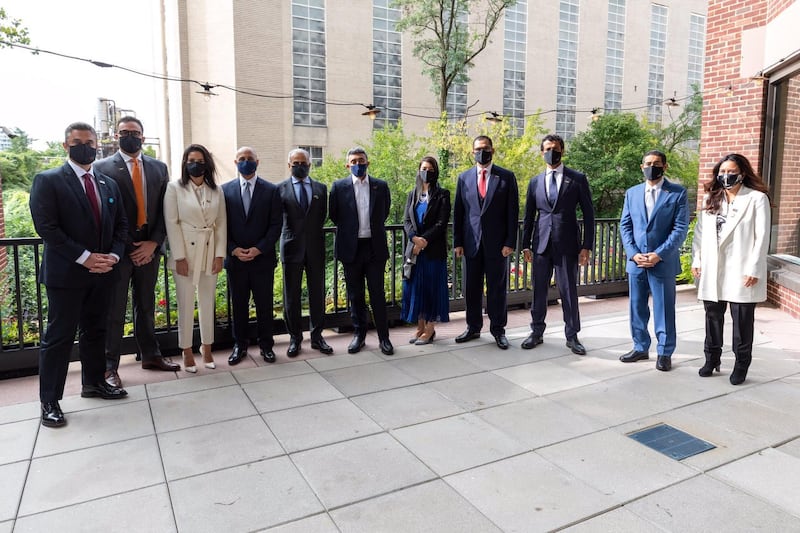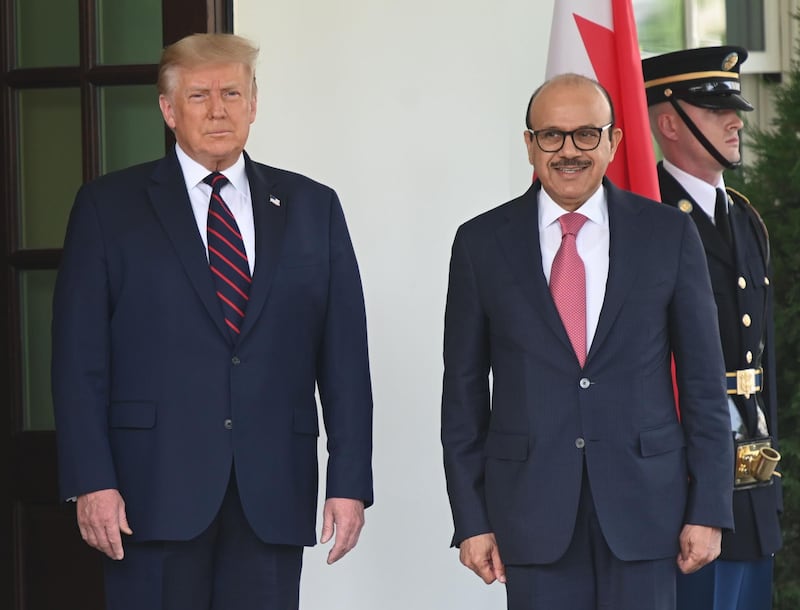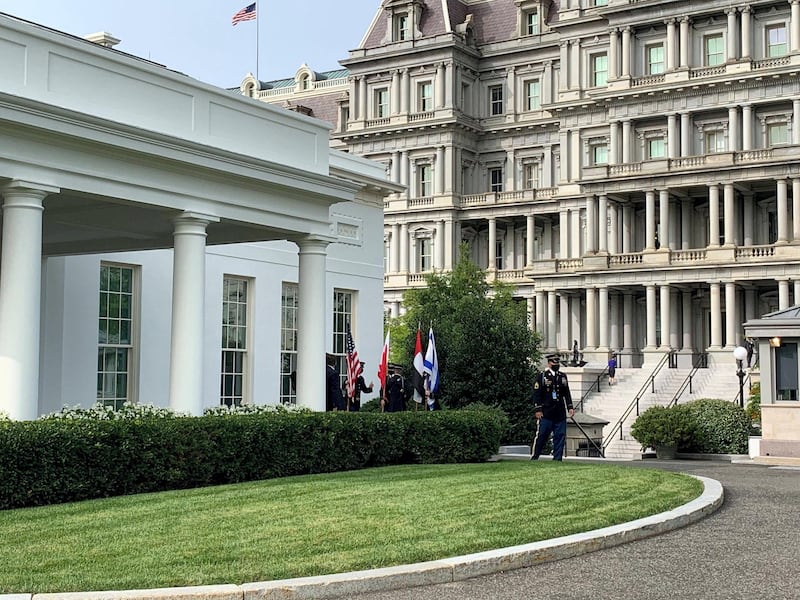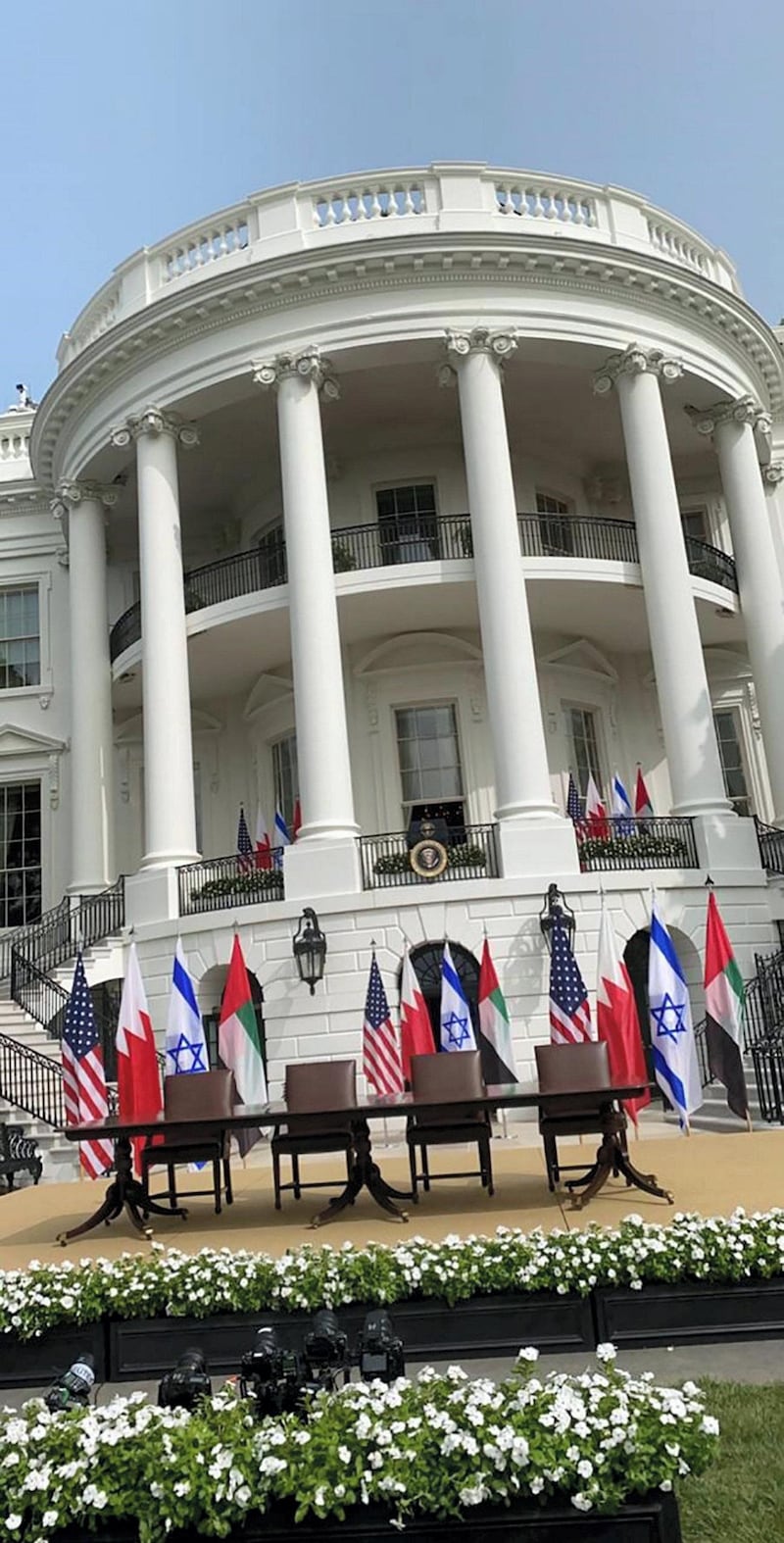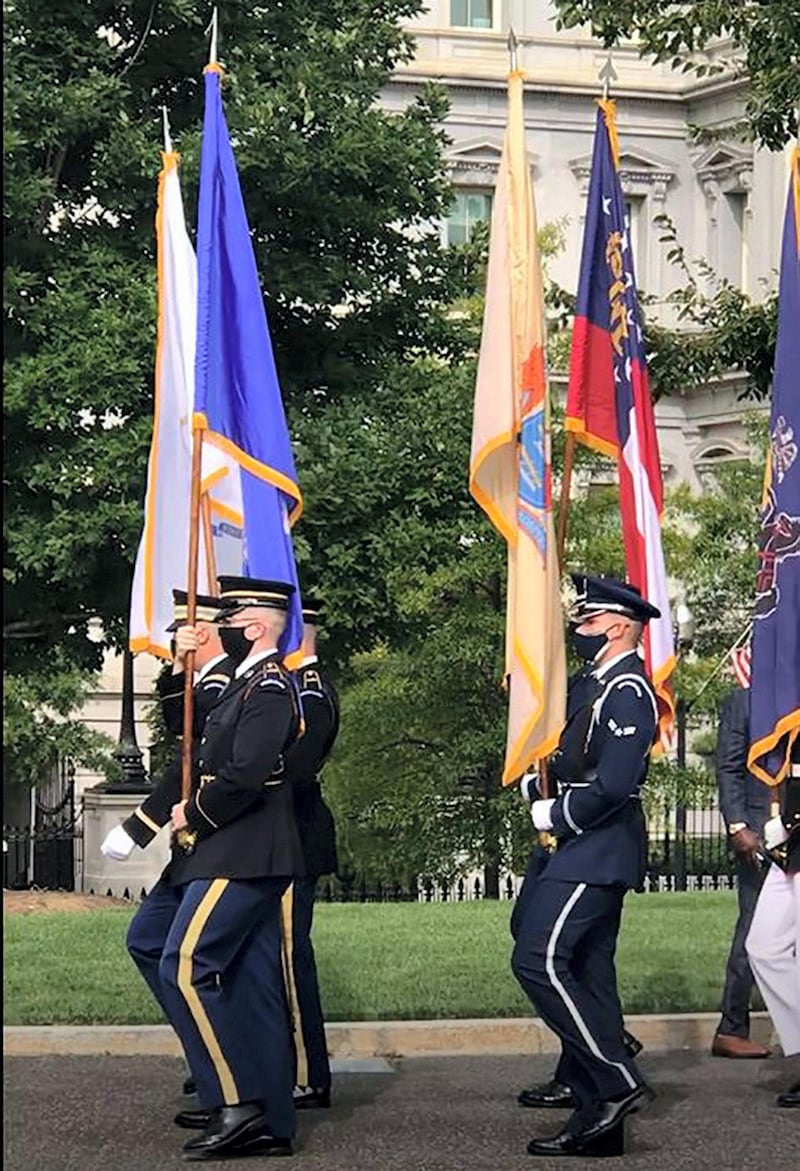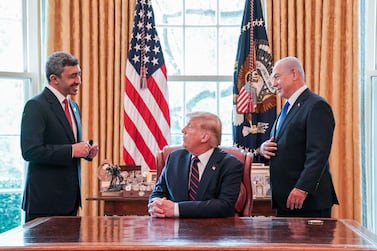In the wake of the Abraham Accord, a "positive initiative” from the US and Israel towards a comprehensive settlement with the Palestinians would encourage all countries in the Middle East to seriously consider the benefits of peace and normalisation, the nephew of former Egyptian president Anwar Sadat said.
The UAE and Bahrain normalised ties with Israel with the signing of the Abraham Accord at a ceremony hosted by US President Donald Trump on Tuesday, becoming the first Arab countries to do so since Egypt in 1978 and Jordan in 1994.
"From my point of view, I think we are very much welcoming this move. Hopefully, we will see others join. But of course saying this, we shouldn't ignore the fact that we would like, again to see a real comprehensive settlement for the main goals, which is the Palestinian [Israeli] conflict," Mohamed Anwar Sadat said in an interview with The National.
Historic moment when Abraham Accord was signed at White House
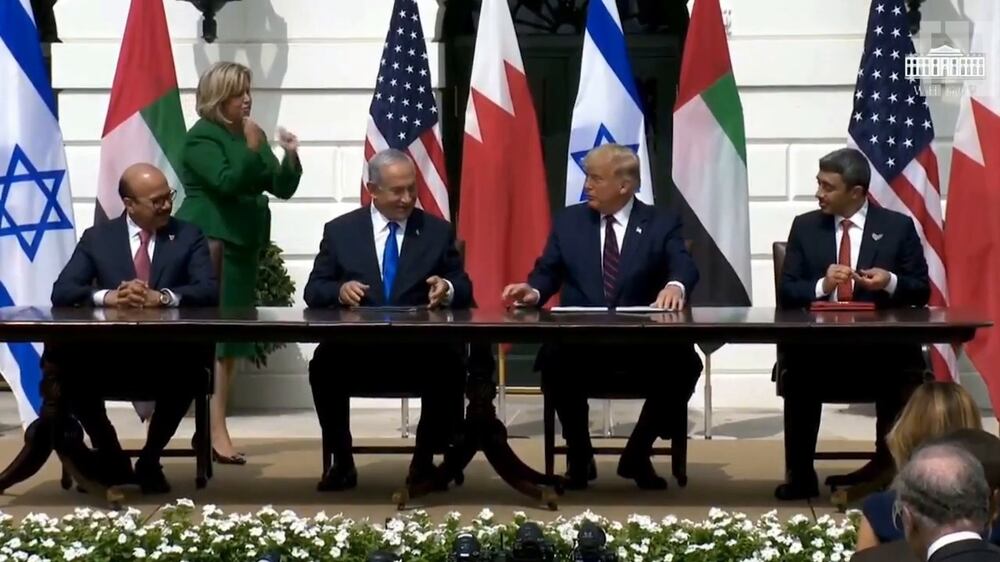
The UAE's decision to normalise ties was announced last month after a call between Sheikh Mohamed bin Zayed, Crown Prince of Abu Dhabi and Deputy Supreme Commander of the Armed Forces, Mr Trump and Israeli Prime Minister Benjamin Netanyahu. As part of the deal, Israel agreed to halt the planned annexation of Palestinian territories in return for establishing relations with the UAE.
Presenting fresh proposals for a two-state solution, or even a single state with equal rights for Palestinians, would create momentum for peace and prosperity across the Middle East, Mr Sadat, 65, told The National from Cairo where he lives and is leading his political party in the Egyptian parliamentary elections.
“This is the only way whereby we will, let’s say, pull down the fences between all the people of our region,” he said.
“I would love to see all of us in this part of the world, living side by side in peace whereby we could make use of all the capabilities which Israel has [such as] technology, a lot of things which we all need [like] agriculture, irrigation, a lot of things we can really co-ordinate [over].”
Egypt’s peace deal with Israel, signed by Anwar Sadat at Camp David in 1978, has led to a "cold peace" only between governments but not “people to people” peace, he said.
“So we are actually losing chances, opportunities. And we never learned from history. So this is the time I think we would love to see whether the Americans or the Israelis try to come up with something solid, whereby we all in the other countries say to the Palestinians: this is what is available, this is the best we can have. Let's sit and come to a final comprehensive settlement and we live all in peace.”
Anwar Sadat made history by travelling to Jerusalem and speaking to the Israeli parliament in 1977 and signing the Camp David Accords in 1978. He was awarded the Nobel Peace Prize that year, but in 1981 he was assassinated by an Egyptian Islamist extremist for making peace with Israel.
His nephew fears that the same forces will foment instability if no comprehensive peace is reached now. Iran and extremist groups “are not happy” about the accords, but could be neutralised if the US and Israel move quickly to bring the Palestinians to the table, Mr Sadat said.
“We would like to see Israel also to come up with something … tell us how we can reach a solution … where at least we could somehow corner the Palestinians, we could make pressure on the Palestinians to tell them take it.”
Resolving the Palestinian-Israeli conflict would create the conditions for a “warm peace” between neighbours which is even more critical during the current pandemic.
“We need each other nowadays, you know. You'll have seen what happened with this Covid-19 and how much the whole world was really in need of coming together, helping, trying to find a way to have a vaccine trying to support each other. We need this. And we know that Israel is part of this world, and we need to find ways and means, but they also have to understand that they should give up a little bit, they should show some flexibility.”
Asked if the US brokering of the agreements signed this week would boost its political clout in the Middle East, Mr Sadat was sceptical. He said the geopolitical field involving new powers such as Russia and China would continue to hold, given the relations they have built in the region.
